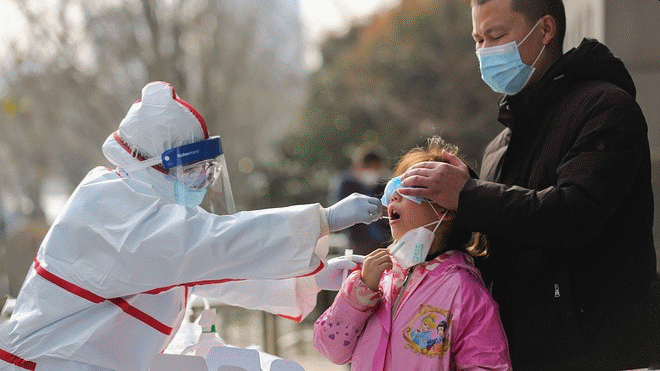These promising therapies are being tested on coronavirus patients by hospitals around the world

As death toll from coronavirus tops 8,000, scientists and researchers are working around the clock to develop vaccine for the deadly virus. These morning we wrote about by three major biotech companies, BioNTech, CureVac and Moderna that have been thrust into the spotlight for their promise to develop an immunization against COVID-19. The companies specialize in messenger RNA (mRNA) therapeutics of which mRNA molecules are used to instruct the body to produce its own immune response to fight a range of different diseases. This type of vaccine can potentially be developed and produced more quickly than traditional vaccines.
Even with the progress being made by these three companies, government and hospitals around the world are under pressure to find a temporary relief for coronavirus patients. In their fight against the deadly coronavirus, hospitals are experimenting existing antiviral medications to treat patients with the disease. For example, NHS hospitals in the United Kingdom are trying medicines already in use for conditions ranging from HIV to rheumatoid arthritis, malaria, the flu and even Ebola are serious contenders and are being tested to see how they could help patients infected with COVID-19.
One of the drugs being used by NHS Hospitals doctors in fighting the coronavirus outbreak is Chloroquine phosphate. The drug is commonly used in Sub Saharan Africa for the treatment of malaria. The drug, which is currently being sold under the brand name Arlan, kills malaria parasites in the blood, stopping the tropical disease in its tracks. However, tests of the drug, which has been used since World War, on COVID-19 patients in China show it has potential in fighting the life-threatening virus.
We wrote about this yesterday after a new academic study showed that over-the-counter anti-malaria med Chloroquine may be highly effective at treating coronavirus. According to a new academic study presented by Thomas R. Broker, (Stanford PhD), James M. Todaro (Columbia MD), and Gregory J. Rigano, Esq., in consultation with Stanford University School of Medicine, UAB School of Medicine, and National Academy of Sciences researchers, shows that over the counter anti-malaria pills Chloroquine may be highly effective at treating coronavirus COVID-19.
The second drug is Hydroxychloroquine, which is also used in treatment of Malaria. A team of experts said that,”It is easy to conjure up the idea that hydroxychloroquine may be a potent candidate to treat infection by SARS-CoV-2.” The U.S. National Institutes of Health (NIH) study also shows that the hydroxychloroquine is more potent in killing the virus off in vitro (in the test tube to not in the body). In a study titled: “In Vitro Antiviral Activity and Projection of Optimized Dosing Design of Hydroxychloroquine for the Treatment of Severe Acute Respiratory Syndrome Coronavirus 2 (SARS-CoV-2),” the result of the study shows that Hydroxychloroquine was found to be more potent than chloroquine to inhibit SARS-CoV-2 in vitro. Hydroxychloroquine, sold under the brand name Plaquenil, causes side effects such as skin rashes, nausea, diarrhoea and headaches. The French government also described Hydroxychloroquine as promising after drug giant Sanofi carried out a study on 24 patients in France. Results showed three quarters of patients treated with the drug were cleared of the virus within six days. None of the placebo group were treated.
The third drug is Lopinavir/ritonavir normally used in the treatment of HIV. Lopinavir/ritonavir, marketed as Kaletra and Aluvia, is an anti-HIV medicine given to people living with the virus to prevent it developing into AIDS.
Lopinavir/ritonavir, marketed under the brand names Kaletra and Aluvia, is an anti-HIV medicine




